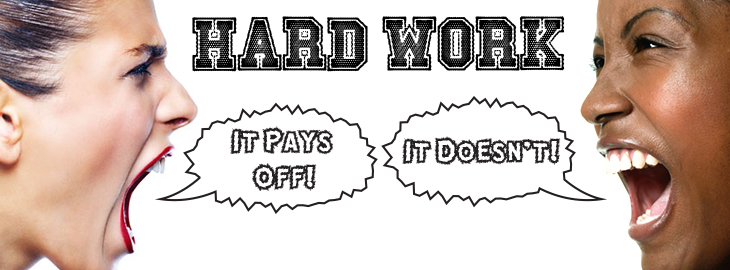
“Hard work is just hard work. Sometimes it pays off. Sometimes…it doesn’t.”
Posted On February 29, 2016
An open letter written by a (now former) Yelp employee to her CEO has drawn a lot of attention recently, both for elements of the entitlement issues that are so often associated with millennials and for the harshness with which another millennial reacted to it.
The original letter, posted on Medium.com by a 25-year-old Yelp employee who identifies herself as “Talia Jane,” related in great detail the difficulties of getting by on an entry-level salary in the expensive San Francisco Bay area as well as her disenchantment with her lack of upward mobility, told she’d be stuck in customer support “for an entire year” while she aspires to work in media.
“I can’t afford to buy groceries,” the former English literature major wrote, adding that she’s not alone. “Every single one of my coworkers is struggling. They’re taking side jobs, they’re living at home. One of them started a GoFundMe because she couldn’t pay her rent.”
While many other millennials might have nodded their heads in agreement as they read Talia Jane’s letter while getting their lunch out of a vending machine, one 29-year-old was unimpressed.
Stefanie Williams, a New York-area television screenplay writer, fired off an open letter of her own to “millennials like Talia,” also on Medium.com, noting that while Talia Jane mentioned her co-workers taking second jobs, she hadn’t done so herself, and apparently had enough money to post Instagram photos of expensive bourbon she’d purchased.
Williams, also an English lit major, related her own story of being “let go from an office job” at 22, taking a hostessing position in a restaurant and working her way up to a decent salary as a bartender while writing on the side, all of which ultimately allowed her to sign with a talent agency and begin her career as a screenwriter.
Then she unloaded on Talia Jane, writing that she is “utterly disgusted by your attitude.”
“The issue is that this girl doesn’t think working a second job or getting roommates should be something she has to do in order to get ahead after three months of an entry level job in the most expensive city in the country,” Williams wrote. “She believes Yelp should cover the cost of the financial decisions she’s made, which include living alone and accepting that salary, two options that any sane person would never make. She believes she deserves these things that most of us would call luxuries. You expected to get what you thought you deserved rather than expected to work for what you had to earn.”
Williams’ post, like Talia Jane’s original letter, was passed around the Internet, with each drawing more than 3,000 likes. But lest you think all older-generation workers were whispering “Preach, girl,” under their breath so the guy in the next cubicle wouldn’t know they’re surfing the web instead of working – and later applauding upon learning that Talia Jane was fired at Yelp — one 36-year-old shot back at Williams with some venom of her own.
Sara Lynn Michener, whose birthdate in 1979 places her at the very end of Generation X, blasted Williams for missing Talia Jane’s point about what should constitute a living wage in San Francisco and for assuming Talia Jane had the help and support of family when elements of her letter indicated that she did not.
“Spoiler: kicking a younger sister when she’s down in self-congratulatory snark is neither gracious nor humble,” Michener wrote, purposely mimicking the style and tone of Williams’ letter. “If I’ve learned anything in the seven extra years I’ve been alive longer than you, Stefanie, it’s this: Hard work is just hard work. Sometimes it pays off. Sometimes – overwhelmingly often – it doesn’t.”
So what are we to take from all this?
For one thing, it’s a tough job market out there, particularly for English lit majors.
But to look at this from a generational perspective, the responses of Williams and Michener are a reminder that labels don’t always apply.
There are some millennials who are just as sick of the entitlement issues they perceive in their generation as any of their older counterparts. And there are some Gen-Xers who will look behind those issues and see that some millennials may be battling very real problems that go beyond the stereotype.
All of which means they’re all human.